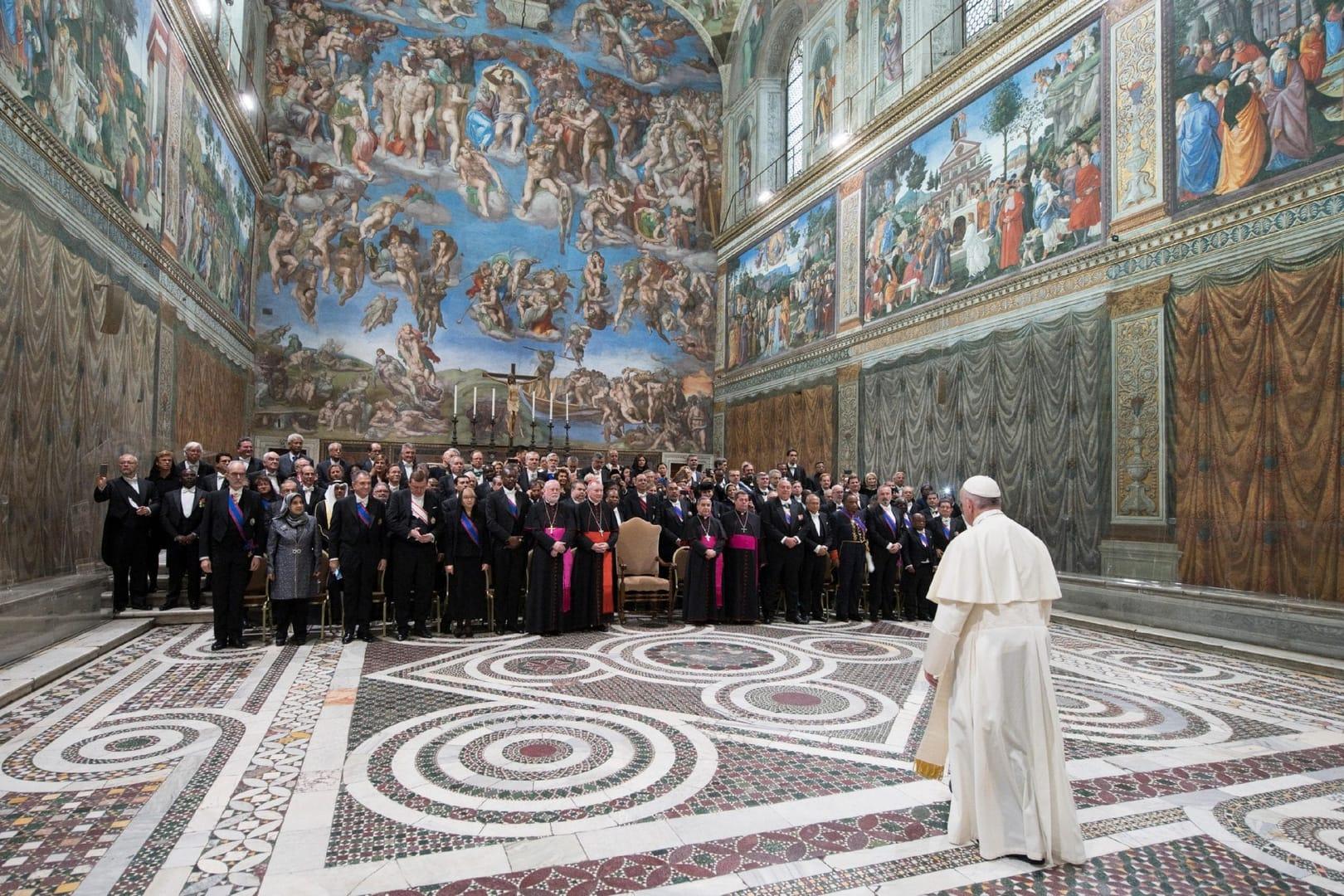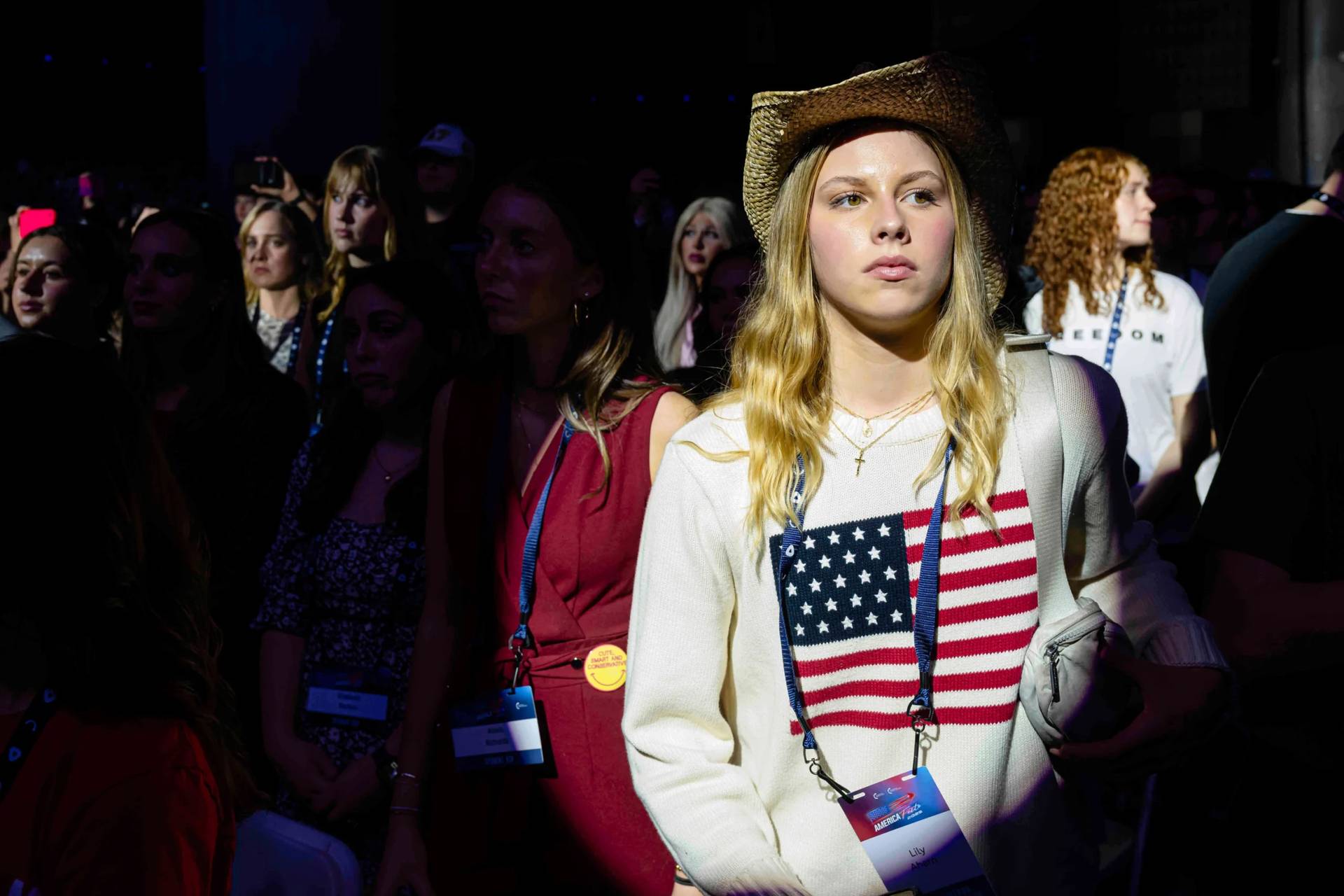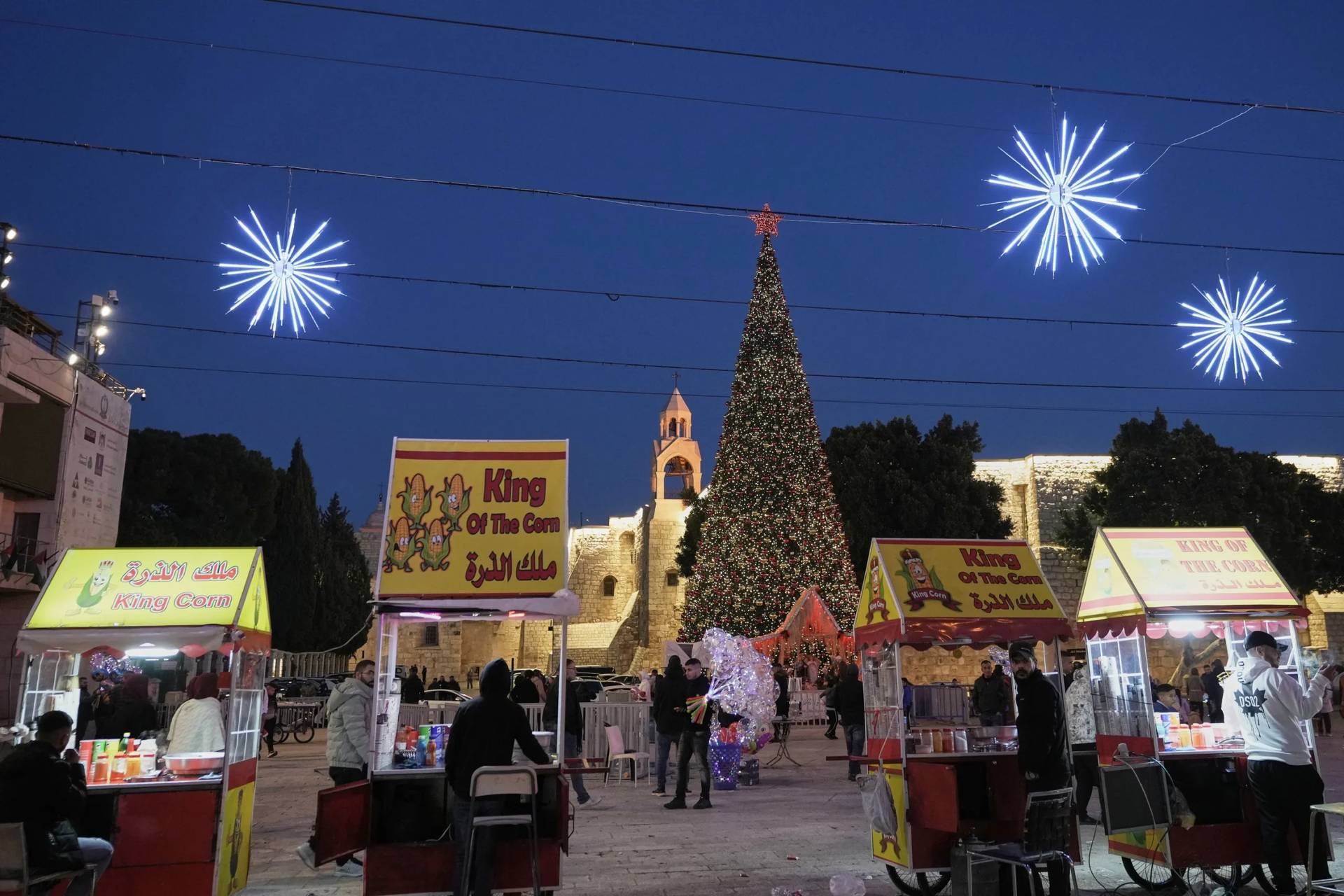ROME – At a time when the U.S. under President Donald Trump is pursuing an aggressive “America first” approach to foreign policy and populist forces elsewhere are likewise urging a primary focus on national interests, Pope Francis on Monday delivered a stirring defense of a “multilateral” approach to diplomacy seeking the collective common good.
“An indispensable condition for the success of multilateral diplomacy is the good will and good faith of the parties, their readiness to deal with one another fairly and honestly, and their openness to accepting the inevitable compromises arising from disputes,” the pope said.
“Whenever even one of these elements is missing, the result is a search for unilateral solutions and, in the end, the domination of the powerful over the weak,” Francis said.
At the same time, Francis also acknowledged the clerical sexual abuse scandals currently rocking the Catholic Church around the world, expressing determination to pursue a path of reform.
“The abuse of minors is one of the vilest and most heinous crimes conceivable,” the pope said. “Such abuse inexorably sweeps away the best of what human life holds out for innocent children and causes irreparable and lifelong damage.”
“The Holy See and the Church as a whole are working to combat and prevent these crimes and their concealment, in order to ascertain the truth of the facts involving ecclesiastics and to render justice to minors who have suffered sexual violence aggravated by the abuse of power and conscience,” Francis said.
“My meeting with the episcopates of the entire world next February is meant to be a further step in the Church’s efforts to shed full light on the facts and to alleviate the wounds caused by such crimes,” he said, referring to a Feb. 21-24 summit on child protection he’s called for the presidents of all bishops’ conferences.
The pontiff’s comments came in his annual address to the diplomatic corps accredited to the Holy See, a speech commonly regarded as marking out a pope’s political and social priorities for the coming year.
The emphasis on multilateral diplomacy could suggest that Francis and his diplomatic team intend to dial up their support for the United Nations and other forums for international cooperation in 2019, building on a decades-long record of Vatican support for the UN and its related institutions.
Francis opened his speech on Monday recalling that 2019 is the 100th anniversary of the foundation of the League of Nations, a precursor to the UN established after the carnage of the First World War.
The pope extolled the League of Nations as the first stirrings of a different approach to international affairs, while describing its failure as a cautionary tale about what happens when the strong simply impose their will on others.
“One notes with regret that the same attitudes are presently threatening the stability of the major international organizations,” Francis said, though without specifically citing any examples.
“It is clear, though, that relationships within the international community, and the multilateral system as a whole, are experiencing a period of difficulty, with the resurgence of nationalistic tendencies at odds with the vocation of the international organizations to be a setting for dialogue and encounter for all countries,” the pope said.
“It is likewise partially the outcome of the growing influence within the international organizations of powers and interest groups that impose their own visions and ideas, sparking new forms of ideological colonization, often in disregard for the identity, dignity and sensitivities of peoples,” he said.
Francis then outlined several core principles of what he sees as a genuinely multilateral form of diplomatic relations:
- The primacy of justice and law
- The defense of those most vulnerable
- Acting as a bridge between peoples and a builder of peace
- Rethinking our common destiny
“At present it is troubling to see the reemergence of tendencies to impose and pursue individual national interests without having recourse to the instruments provided by international law for resolving controversies and ensuring that justice is respected, also through international courts,” Francis told the diplomats gathered in Rome.
As he characteristically does, Francis also highlighted certain specific hotspots around the world that are zones of special concern for him and the Catholic Church, beginning this year with Ukraine.
“Through her activities and her closeness to the people involved, the Church strives to encourage, directly and indirectly, peaceful paths to the solution of the conflict, paths that are respectful of justice and law, including international law, which is the basis of security and coexistence in the entire region,” he said.
Francis also offered several references to the ongoing conflict in Syria, including an “appeal to the international community to promote a political solution to a conflict that will ultimately see only a series of defeats.”
Surveying the Middle East, Francis offered a word of encouragement for the beleaguered Christian minority, at a moment when some observers worry that Christianity in the region may be sliding towards extinction.
“I encourage all those who have sought refuge in other places to do everything possible to return to their homes and in any event to maintain and strengthen their ties to their communities of origin,” he said.
The pope also reiterated his commitment to stronger environmental protection.
“The earth belongs to everyone, and the consequences of its exploitation affect all the peoples of the world, even if certain regions feel those consequences more dramatically,” he said.
As a final tribute to multilateralism, Francis recalled the birth of a new era of cooperation in Europe after the Second World War.
“In the present climate, marked by new centrifugal tendencies and the temptation to erect new curtains, may Europe not lose its awareness of the benefits – the first of which is peace – ushered in by the journey of friendship and rapprochement between peoples begun in the postwar period,” he said.
















